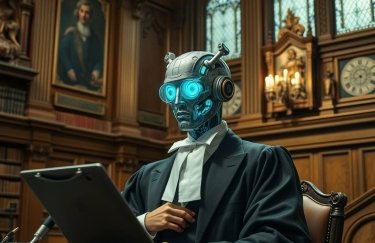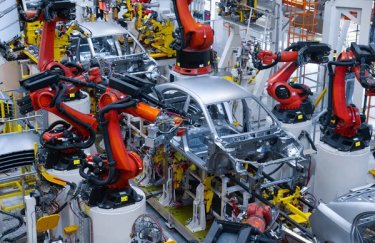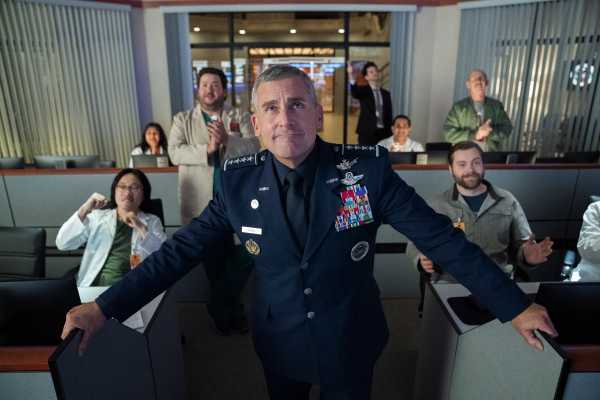
A new Greg Daniels show is an event in TV comedy. After years spent writing for Saturday Night Live and The Simpsons, he co-created King of the Hill in 1997, developed the American version of The Office in 2005, and then co-created Parks and Recreation in 2009. He’s won many Emmys and Golden Globes, and it’s no exaggeration to say that his brand of comedy — gentle, but not without teeth when it comes to social and cultural issues — has helped shaped American TV in the 21st century.
Now, five years after Parks and Recreation wrapped, Daniels has not one but two new comedies coming out, both in May. On May 1, his show Upload premieres on Amazon. It’s a near-future sci-fi comedy with a bit of a dramatic edge, set in a world where people who have died can have their consciousnesses downloaded into a “digital afterlife,” where they live on as avatars and can communicate with people back on Earth. Those afterlives are owned and developed by corporations like “Horizen” and “AT&T&T” and Disney — and the afterlife you can afford is the one you get. Robbie Amell plays Nathan, a young man who dies in a mysterious car crash and is uploaded to the fanciest of all afterlives, where he “meets” his customer service agent, Nora (Andy Allo).
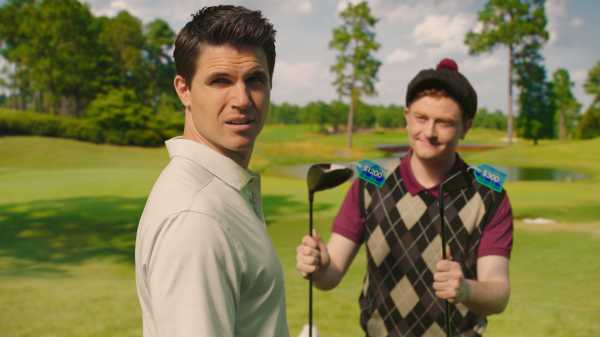
On May 29, Daniels’s other new series, Space Force — co-created with and starring The Office’s Steve Carell — premieres on Netflix. Also starring John Malkovich, Ben Schwartz, Diana Silvers, and Tawny Newsome (and a bevy of boldface names as guest stars), the show is the tale of Mark Naird, an Air Force general who believes he’s gotten the promotion of his life when he’s appointed head of the newly created Space Force. Soon, though, he realizes that he’s landed himself squarely in hell.
I talked to Daniels by phone about the two shows, afterlives in sitcoms, how he thinks about politics in comedy, and more. Our conversation, which has been lightly edited for length and clarity, follows.
Alissa Wilkinson
Quite a few recent TV shows deal with the afterlife or digitized versions of the self — I’m thinking of shows like The Good Place, Westworld, and Devs, for instance. What feels different about Upload is how it envisions the afterlife. It posits a world where capitalism has figured out how to colonize not just life, but life after death, and turn it from a meritocracy into a world that’s segregated according to income.
I know you were working on the idea for Upload for a while. Was the income-based afterlife an element from the beginning?
Greg Daniels
That was the nugget that I first had, actually. I was trying to think of sketch ideas for SNL when I was a writer there. This was how long ago it was. [Note: Daniels worked on the writing staff of Saturday Night Live from 1987 to 1990.]
I was walking around midtown Manhattan, past all those electronics stores next to Rockefeller Center. They were all advertising CD players, switching to digital from analog. I was trying think of a comedy sketch, so I was thinking, “What else could you digitize? What other things in life would it be ridiculous to digitize?” And I was like, well, the ultimate would be your own mind — where everybody’s digitizing and living in a hosted computer environment, or something.
Then I was like, well, if we could do that, that would mean people would be able to create their own afterlife and program it to whatever the tenets of their faith were. We would have an afterlife, but human beings would have made it, so it would have all these greedy aspects that are more like the Catholic Church in the 1400s, where you can buy an indulgence.
To me, that was the hook of the idea. It didn’t feel like a sketch, so I left it in my notebook. I had aspirations to write something in prose, so periodically I’d go back to that idea and write various prose scenes for it. In the TV writers’ strike of 2008, I was trying to put it together, like a Harry Potter-ish book. But then the strike ended.
I’m glad that I waited, because I think it would’ve been more of a straight sci-fi idea back when I [first] had it. I think it would have also had a smaller, nerdier audience. All of these other projects that have come since then have helped explain the premise of digitizing yourself [to audiences]. And now, we have these giant tech companies that have Siri and Alexa and Google Assistant — it’s not an enormous jump to imagine that if they did have this [afterlife] technology, that six giant tech companies would be running it for profit. Everybody has had the experience of having to agree to a Terms of Service update that’s 700 pages long and in tiny print. You just go, “Ugh, okay, I agree,” and you don’t realize that you’re signing away your privacy or whatever. That’s a relatable experience now.
I think there’s a lot of optimism about technology, in the sense that virtual reality is probably how we’re gonna connect a lot in the future. And thank goodness we’re able to videoconference and be connected by the technology. But I also think that it exacerbates the difference between employees and owners, because it just makes it so easy to replace human beings with a little piece of software. There’s a lot of economic dislocation happening.
So it felt like now, more than ever, it would be a relevant idea.
Alissa Wilkinson
It was pretty weird to watch Upload after being mostly stuck at home for the past six weeks, having been connecting with people only through screens. There are whole sections of the show where “bio” people and “uploads” are only able to talk through screens, and everyone just accepts it as normal — like when Nathan attends his own funeral and can talk to everyone there as if he’s in attendance, except there’s an enormous screen between them.
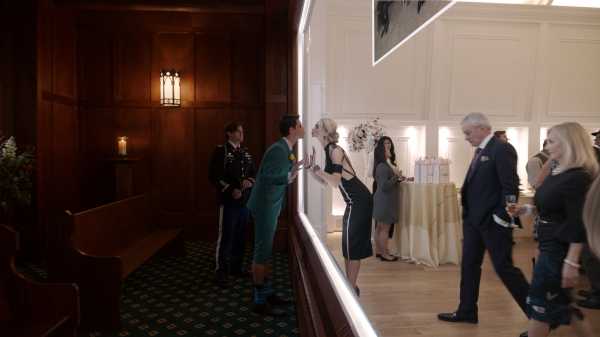
It actually made me think a lot of Spike Jonze’s 2013 movie Her, where Joaquin Phoenix has a full-fledged relationship with an intelligent being that’s kind of “inside” a computer.
Greg Daniels
Totally. That was one of my inspirations in terms of tone. I love that movie. It’s one of my favorites. I also loved Eternal Sunshine of the Spotless Mind, in terms of another tonal influence.
Alissa Wilkinson
The funny thing about Her, to me, is that it’s set in a dystopian world, but nobody in that world seems to know that.
Greg Daniels
Yeah!
Alissa Wilkinson
We always imagine that dystopias will be dark and weird and scary. But you’ve got the same thing happening in the “real world” of Upload. One of the main characters, Nora, who works as a customer service representative for an afterlife run by a major tech company, is growing vegetables outside her apartment window, and it’s not just a hobby — we realize she needs them for sustenance, presumably because vegetables are getting too expensive.
Greg Daniels
There was a scene that I had in one of the episodes, but I had to cut it for time. Nora goes down an alley to hand some money over to a sketchy-looking guy who gives her a brown paper bag. It looks like a drug buy, but actually she’s buying a green pepper that was homegrown. She eats the green pepper, and then a police drone stops her and asks her whether that was an approved Monsanto green pepper. When the police drone finds out it isn’t, it irradiates the seeds of the green pepper to kill them so she can’t grow her own.
I told the crew that I don’t consider this a dystopia, and I don’t consider it a utopia. I consider it a middle-topia, in the sense that, to me, when you look at anything in life that has lots of promise, the law of unintended consequences and human error always comes into play. To me, that’s how this scenario would play out. Someone very optimistically invents this way for us to stay in contact with our family for hundreds of years after we die. Everybody loves the promise of it. Then it turns into an unfair way for billionaires to persist forever and big companies to charge you all the time.
But it’s comedy, right? I don’t want to be a depressing drumbeat. But when you think about the show, there’s a lot to give you pause, for sure.
Alissa Wilkinson
One thing that struck a chord for me was the way corporate sponsorship of everything has truly taken over in their world. You have some ludicrous company mergers, like Panera and Facebook, that then have their own afterlife to sell.
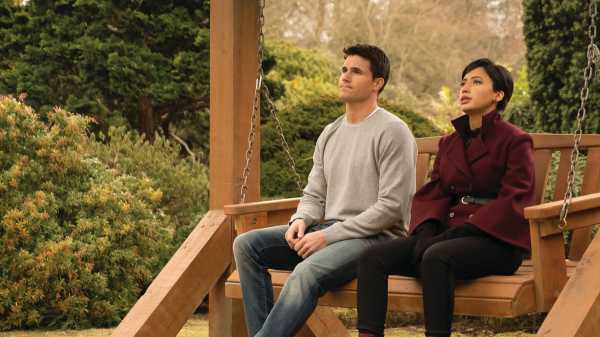
Greg Daniels
I like the idea that somehow or another, Panera has this very ambitious executive crew, and they’re buying way bigger companies in the future and rolling them up.
Alissa Wilkinson
In their world, everyone gets rated all the time too, in all kinds of contexts, from work to casual sexual encounters. And obviously, though we mostly think about it in terms of rating the job your Uber driver does here in the US, people are being rated on a much broader set of criteria elsewhere, as in China’s social credit system.
Greg Daniels
Isn’t that crazy? China did this after I had it in my script. I thought, well, everybody’s on Tinder, and it’s led to sort of a transactional, somewhat dehumanizing set of interactions. How would you exaggerate that [for the show]? Well, maybe after every one-night stand, you have to get ranked like an Uber driver and rated. That was the comedy premise, and then to find out that China’s doing it was crazy.
That happened with the vaping too. I had a joke in the pilot that Nora’s dad had turned to vaping to be healthier than cigarette smoking, and then vaping turns out to be worse. When I wrote it, vaping was considered a healthy alternative to cigarette smoking. Then all this information came out a year after we shot [the pilot] that there was a mysterious disease caused by vaping.
That’s one of the possible drawbacks of setting something in the future: The present keeps changing. The backstory on one character, Luke, was that he was a veteran from the war with Iran. That was just supposed to be a joke, and then in the beginning of this year it looked like, wait, we might be actually getting in a war with Iran.
Alissa Wilkinson
It’s interesting that you’ve set both Upload and Space Force in the very near future. That’s not the only way they’re similar, at least for me. I have this theory that all sitcoms happen in an afterlife where the characters are stuck together, either in purgatory or hell, and they just don’t know it. Obviously that’s true in Upload, but when I started watching Space Force …
Greg Daniels
What did you think about Carell’s character in Space Force? Which one would he be in?
Alissa Wilkinson
I think he starts out thinking he’s about to get out of purgatory, but then discovers he’s landed himself square in hell — the Jean-Paul Sartre version of hell, where he’s been trapped with other people specially selected to drive him nuts by a vengeful god we never see, because that god is the president.
This whole afterlife theory is obviously my own specific, weird idea. But I always felt like The Office was just people trapped together in purgatory, trying to work out their salvation.
Greg Daniels
I used to say that The Office was like Hogan’s Heroes. It was people in a prison camp who are just trying to be decent to each other. That’s exactly the same analysis.
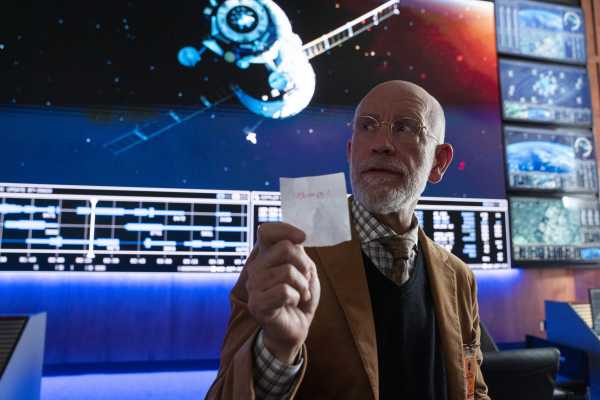
Alissa Wilkinson
One thing that struck me about Space Force is how pointedly political it feels. There are characters whose names and looks are barely veiled versions of our reality, with characters who seem drawn from everyone from Nancy Pelosi and Alexandria Ocasio-Cortez to Anthony Scaramucci. Obviously Parks and Recreation has some political elements as well, but this one strikes a more satirical tone.
Greg Daniels
You know, the show that I’ve done in the past that it reminds me the most of is actually King of the Hill. The lead character is on the more conservative side. I think the challenge is to portray his point of view in such a way that people who share his point of view feel that they’re being accurately given some airtime and respected.
[With Space Force,] it’s not our intention to go all-out and poke fun at the military. Steve and I both have relatives in the military. We have a lot of respect for all the positives that our relatives have. I think it’s about this military guy, who’s very much about service and sacrifice, [who] is being squeezed between politicians who are really anxious to get on the moon as fast as possible in a kind of neocolonialist scramble, and scientists who don’t necessarily agree with the aims of the program and are hard to understand. So a guy like [Carell’s character] Mark Naird, he’s trying his best.
There’s so much that’s positive in America’s history with space. If we had one beautiful, shining moment, it might be the Apollo program, where the entire world was watching us step on the moon. The quote was that it was “a giant leap for mankind.” We were leading. We had a sense that we were all in it together as human beings.
I think the object of our satire — and it’s just not our country, it’s all over the world — is more the rising nationalism taking place, and contrasting [those] early days of space exploration, where the whole world was watching. Obviously, there was competition with the Soviet Union, but the rest of the world was watching and feeling proud of American astronauts.
Now it seems like the notion is to get actual soldiers on the moon and have a moon base, with guns. It’s got a different feel to it.
I’m not saying that it’s crazy to have to protect our satellites, or whatever. The more research that we did into it, the more it didn’t feel like the problem was all in the heads of people in the United States, because there’s people in Russia and China and elsewhere scrambling to get up there. I think the show’s feeling is more that it’s too bad we’re now in this new phase [of space exploration], where it isn’t about doing it for all mankind.
Alissa Wilkinson
The show also sets up a conflict between the scientists, the military, and outside political interests. That feels like a smart diagnosis of why things like protecting assets in space go so awry, or how politicians can co-opt legitimate national interests for their own ends. We’re not good at explaining anything that could be for the common good outside the terms of politics anymore.
Greg Daniels
The country’s so divided. I think King of the Hill was about the divisions, but it was meant to be something that everybody could watch and think about the divisions and get past them, find places of common ground. So I don’t know. Space Force is supposed to be entertainment. It’s supposed to be open for everybody.
I think there’s an expectation that because it’s about the “space force,” the show will just be relentless mockery. That’s not what we’re up to. Who knows? Maybe people will be upset that there isn’t enough mockery. I don’t know. Could be.
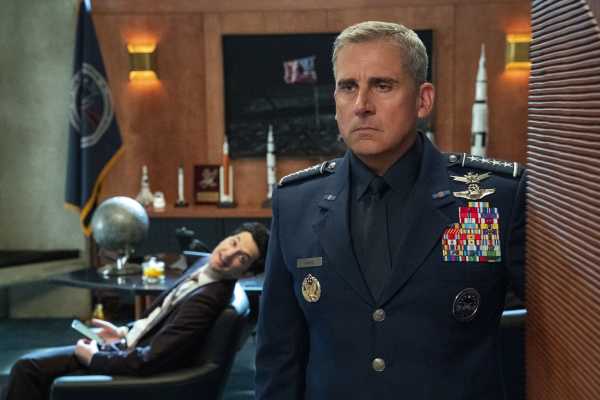
Alissa Wilkinson
The satire feels sharp in places. But in the third episode, it also presented the first case for a “space force” that made me think, “Oh, now I get what the point of this branch of the military would be for.”
Greg Daniels
I think that’s kind of the message, right? Naird is a good-hearted person. He’s trying his best. He’s got ideals that are sort of classically American. He’s being put into this situation where it’s very challenging to maintain his ideals.
It’s not for me to say what the show’s about — that’s for critics to say. But our intention is to not be all one-sided on it.
Alissa Wilkinson
One last question: In one Space Force episode, Naird and some of the others are mimicking what it would be like to live on a moon base. They’re stuck in a small space, growing potatoes, running in circles for exercise, and it felt awfully familiar to what we’re living through right now. How do you feel about that episode now?
Greg Daniels
That’s so funny. I actually got a bag of seed potatoes to plant in my backyard in case everything goes to hell. But that episode was partly inspired by the movie The Martian.
Alissa Wilkinson
I figured.
Greg Daniels
I haven’t done my own research, so if it’s inaccurate, if you actually can’t live for months on potatoes, I’m going to be in a lot of trouble. But I am starting to plant potatoes.
Upload premieres on Amazon Prime Video on May 1. Space Force premieres on Netflix on May 29.
Support Vox’s explanatory journalism
Every day at Vox, we aim to answer your most important questions and provide you, and our audience around the world, with information that has the power to save lives. Our mission has never been more vital than it is in this moment: to empower you through understanding. Vox’s work is reaching more people than ever, but our distinctive brand of explanatory journalism takes resources — particularly during a pandemic and an economic downturn. Your financial contribution will not constitute a donation, but it will enable our staff to continue to offer free articles, videos, and podcasts at the quality and volume that this moment requires. Please consider making a contribution to Vox today.
Sourse: vox.com
